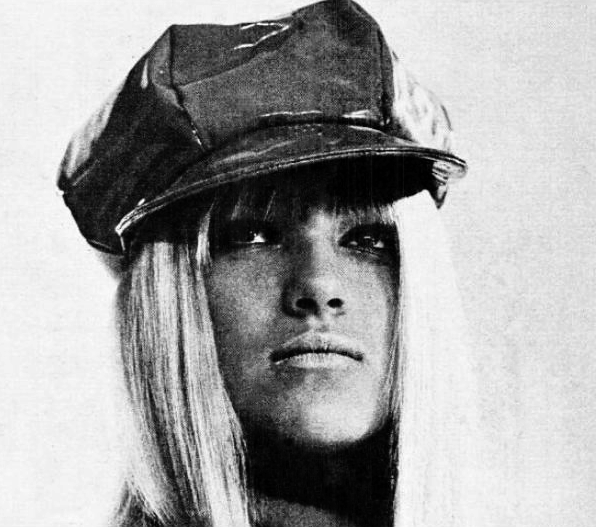BIOGRAPHICAL DETAILS
Full Name: Lynn Annette Ripley
Description: Singer, songwriter
Known For: Album – “Little Star”
Music Styles: Pop
Location: London, United Kingdom
Date Born: 15th July 1948
Location Born: Surbiton, Australia
CONTACT DETAILS
Web Site: http://www.npg.org.uk/collections/search/portrait/mw58845/Twinkle-Lyn-Ripley
YOUTUBE VIDEO
BIOGRAPHICAL PROFILE
Twinkle
Lynn Annette “Twinkle” Ripley (born 15 July 1948, Surbiton, England) is an English singer-songwriter, who had chart successes in the 1960s with her best known songs, “Terry” and “Golden Lights”. English singer-songwriter, primarily in the 1960s. Twinkle’s most famous songs were “Terry” and “Golden Lights”.
An English singer-songwriter, primarily in the 1960s. Twinkle’s most famous songs were “Terry” and “Golden Lights”. Born in Surbiton into a well-to-do family, Lynn Ripley was known to her family by the pet name of “Twinkle”. She attended Queen’s Gate School with Camilla, Duchess of Cornwall. She is the aunt of actress Fay Ripley.
In concept “Terry” bore some similarities to the Shangri-Las’ “Leader of the Pack” (1964), both teenage tragedy songs about a girl lamenting the death of her daredevil boyfriend in a motorcycle crash. The record caused a furore, accusations of bad taste leading to its ban from the BBC.
Only 16 at the time, Twinkle owed her rapid entry into the recording studio to her then-boyfriend, Dec Cluskey, of the popular vocal group The Bachelors, who passed on her demo to his manager.
Jimmy Page was among the high profile session musicians who played on “Terry”.
Twinkle’s effort, “A Lonely Singing Doll”, is the English language version of France Gall’s 1965 winning Eurovision Song Contest song for Luxembourg, “Poupée de cire, poupée de son”.
Twinkle owed her rapid entry into the recording studio at the age of 16 to her then-boyfriend, Dec Cluskey, of the popular vocal group The Bachelors, who was introduced to her by her sister, a music journalist, and who passed on to his manager a demo that Twinkle’s father played to him. Her song “Terry” was a teenage tragedy song about the death of a boyfriend in a motorcycle crash. Big Jim Sullivan and Jimmy Page were among the high profile session musicians who played on the recording, which conjured up a dark mood with its doleful backing vocals, spooky organ, 12-string guitar and slow, emphatic rhythm arranged by Phil Coulter. The theme was of a common type for the era, it bore some similarities to the Shangri-Las’ slightly later “Leader of the Pack” (1964), but the record caused a furore, accusations of bad taste leading to a ban from the BBC.
The follow-up, “Golden Lights”, was also written by Twinkle, with a B-side again by producer Tommy Scott. By then Cluskey was her ex-boyfriend: Twinkle dated Peter Noone in 1965. The lyrics express disillusionment with the pop business: her EP track “A Lonely Singing Doll”, the English-language version of France Gall’s 1965 winning Eurovision Song Contest song for Luxembourg, “Poupée de cire, poupée de son”, originally written by Serge Gainsbourg, returned to a theme similar to “Golden Lights”. “Johnny” continued to explore dangerous territory, this time that of a childhood friend who becomes a criminal, but it seems the pressure to produce “another Terry” led her producers to pass over her own material, for “Tommy” was a song written for Reparata and the Delrons and “The End of the World” for Skeeter Davis. Twinkle made few live appearances but performed “Terry” at the annual New Musical Express hit concerts. After recording six singles for Decca Records she “retired” at the age of eighteen in 1966.
In 1969 she recorded a self-written single, the Tamla Motown-styled “Micky”, backed with “Darby and Joan”, both produced by Mike d’Abo for the Immediate label. The single vanished, unpublicised. In the ensuing years, unsigned and working in music for advertising, she recorded a suite of songs inspired by her relationship with “Micky”, the actor/model Michael Hannah, who was killed in an air-crash in 1974. These remained unreleased until they were included on CD compilations. Her later recordings appeared under the name Twinkle Ripley: she also recorded a 1975 single, “Smoochie” with her father, Sidney Ripley as “Bill & Coo”.
In the 1980s “Golden Lights” was covered by The Smiths and appeared on their compilation albums The World Won’t Listen and Louder Than Bombs while in 1983 Cindy & The Saffrons covered “Terry”.
Discography
Singles
Decca
“Terry” (Twinkle) / “The Boy of My Dreams” (Scott) (1964) UK No. 4
“Golden Lights” (Twinkle) / “Ain’t Nobody Home But Me” (Scott) (1965) UK No. 21
“Tommy” (Taylor, Bradtke, Daryll) / “So Sad” (Scott) (1965)
“Poor Old Johnny” (Twinkle) / “I Need Your Hand in Mine” (Scott) (1965)
“The End of the World” (Arthur Kent and Sylvia Dee) / “Take Me to the Dance” (Scott) (1965)
“What Am I Doing Here With You?” (Sloan, Barri) / “Now I Have You” (Scott) (1966)
for Instant
“Micky”/”Darby And Joan” (1969)
As Twinkle Ripley
“Days”/”Caroline” (1974)
“I’m a Believer” (1982)
“For Sale” (1984)
EP
Lonely Singing Doll (Decca, 1965) “A Lonely Singing Doll”, “Unhappy Boy”, “Ain’t Nobody Home But Me” and “Golden Lights”
Album
Little Star
Compilations
Golden Lights (1993)
Golden Lights:Special Edition (2001)
Michael Hannah: The Lost Years (2003)
LINKS:
From Wikipedia, the free encyclopedia

